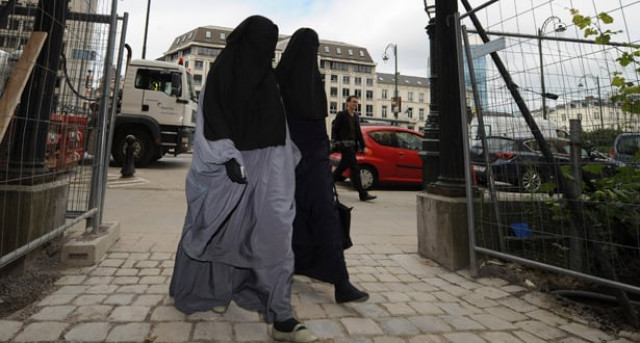Talking multiculturalism: ‘Integration for EU migrants is a two-way street’
Experts gather at Karachi University for seminar organised by the Hanns Seidel Foundation.

Talking multiculturalism: ‘Integration for EU migrants is a two-way street’
With the Union Jack billowing behind him like a cape, Mo Farah bore an uncanny resemblance to a comic book character as he celebrated his victory in the 5,000m final at the London 2012 Olympics in a whirlwind of red, white and blue. And indeed, the Somali-born British Muslim – who found it difficult to string together a sentence in English when he first set foot in England 21 years ago – was Britain’s superhero that night.
But Britain had achieved a minor victory even before Farah, wide-eyed and delirious, set his foot past the finish line. If there was a medal for ethnic diversity in Olympic teams, the country would have surely bagged one. But in the current climate of misunderstanding and pervasive Islamophobia post 9/11, how long will the salad bowl remain fresh and what can be done to stop extremists and right wing groups, who can be thought of as pests in this metaphor, from eating away at it?
At a workshop held nearly 4,000 miles away at the Karachi University’s Area Study Centre for Europe on Thursday, academics and policy analysts gathered to discuss just that.
The event was organised by the university in collaboration with the Hanns Seidel Foundation, a German non-governmental organisation which aims to promote peace and development across the globe.
Though the workshop might have seemed like recycled rhetoric on multiculturalism to those well-versed on the matter, it was nonetheless a comprehensive introduction to the issue crammed into a session just shy of two hours. And though the title of the workshop implied that all migrant communities would be covered, the bulk of it veered – quite inevitably – into yet another discussion on Islam’s turbulent relationship with the ‘West’.
“There are over 15 million Muslims in the European Union and their presence is now being perceived by some as a threat to the region’s culture, civilization and political order. In fact, some people have suggested that there is a very real possibility that Muslims will unite and try to carve out their own state in Europe,” said Dr Rashid Ahmad Khan, the dean of the faculty of arts, social sciences and law at the University of Sargodha, who was one of the three panellists. “But I think that the Muslims are not a threat as they are not a monolithic group and come from a diverse set of countries.” He also highlighted the need for an open debate and dialogue between Islam and Christianity, which he feels will help solve the problem of Muslim migrants in Europe.
Fellow panellist, Hans-Juergen Paschke, the head of mission of the German Consulate, said that around seven million foreigners are living in Germany. “Integration is a two-way street,” he said. “The immigrants must take responsibility of their own integration and the other citizens of the country must be willing to accept them.” He then went on to highlight a number of measures that Germany has taken to ensure that a vibrant migrant community can flourish within its borders. Part of them are a number of courses on German culture and legislation which migrants must clear to have a shot at the coveted blue card, which will give them access to jobs in Germany.
Former Ambassador Shahid Amin, the last panellist to speak, pointed out the salience of the media in shaping ties between different groups and called for responsible reporting on the sensitive issue. “The Western media exaggerates and conflates a broad spectrum of Muslims with extremists, which is incorrect.”
And indeed, the first article to appear on Google using the phrase ‘number of Muslims in the European Union’ is a piece published in The Telegraph, titled ‘Muslim Europe: the demographic time bomb transforming our continent’. The same piece goes on to reveal ‘startling’ figures about the Muslim population in Europe. But it would not be fair to say that all stories published in ‘Western’ newspapers equate Muslims with terrorists – take for example the work of Yasmin AliBhai-Brown, who has written extensively in support of ethnic pluralism in Europe, and particularly England.
Ambassador Amin then went on to point out that it was the same terrorists who would like to harm the US and Europe who want to take all Muslims back to the dark ages. This is the mutual enemy which Islam and the West must focus on to achieve mutual prosperity, he added. “The world is large enough to accommodate all religions and ethnicities. All we need to do is be receptive of each other’s ideas.”
Published in The Express Tribune, August 31st, 2012.



















COMMENTS
Comments are moderated and generally will be posted if they are on-topic and not abusive.
For more information, please see our Comments FAQ